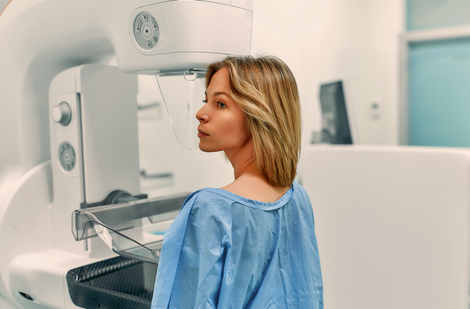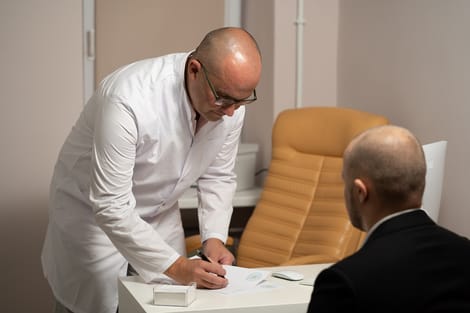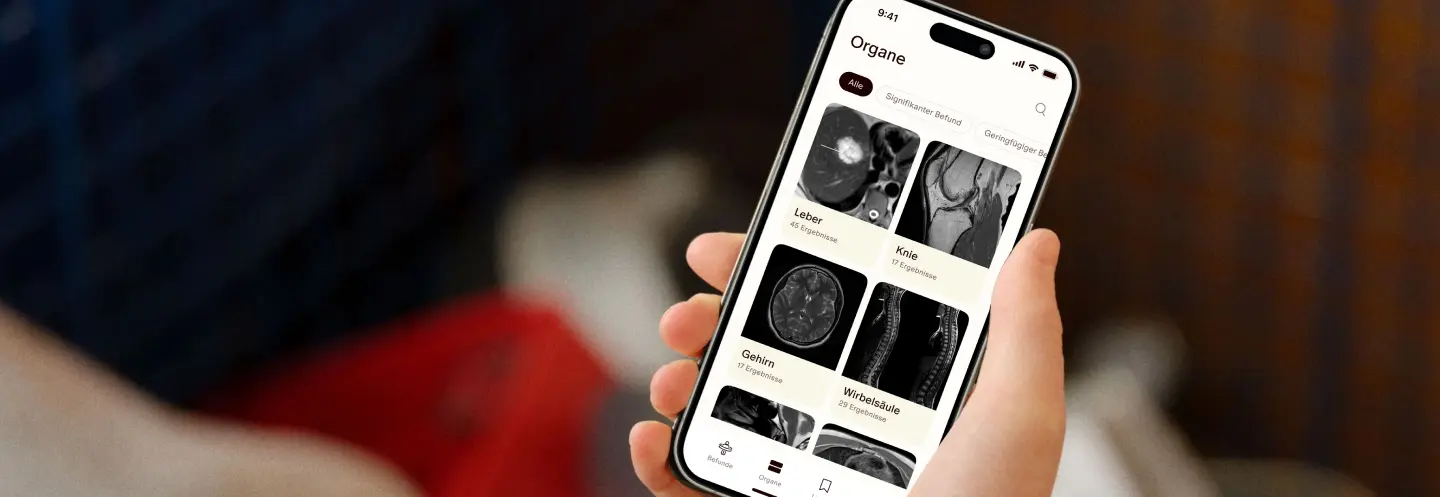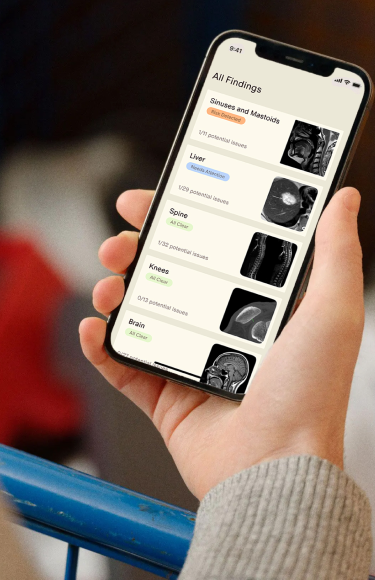Claustrophobia or fear of the results often prevents an MRI scan. Learn how to cope with these fears and explore alternatives to the traditional MRI.
Fear of medical examinations is widespread and affects many people, from childhood to adulthood. Procedures such as breast cancer or prostate screenings, blood tests, or MRI scans can trigger anxiety for various reasons. Two main concerns are at the forefront: the fear of a serious diagnosis and the worry about possible discomfort or pain during the examination. Magnetic Resonance Imaging (MRI) is no exception, and many patients experience similar fears. A British survey found that 25% of respondents would refuse medical treatment due to their intense fear of the MRI scan. According to a study by Berlin's Charité, between 1 and 15% of patients miss pre-scheduled MRI appointments. A German thesis even documented a 39% dropout rate for MRI scans.
Despite these figures, MRI is an extremely safe, non-invasive, and highly effective method for detecting a wide range of conditions in their early stages, when they are still easily treatable. Unlike other imaging methods, MRI involves no radiation exposure since images are generated using a strong magnetic field and RF pulses. In many cases, contrast agents are not needed, and as long as there are no metal objects in the body, the process is straightforward: the patient lies on a table that slides into the MRI scanner, the images are taken, and the scan is completed within 15 to 60 minutes.
So why are there so many cancellations and concerns about MRI scans?
MRI and Claustrophobia
The most common reason for discomfort during MRI scans is claustrophobia. In the confined space of the MRI machine, patients must remain still while hearing knocking noises.
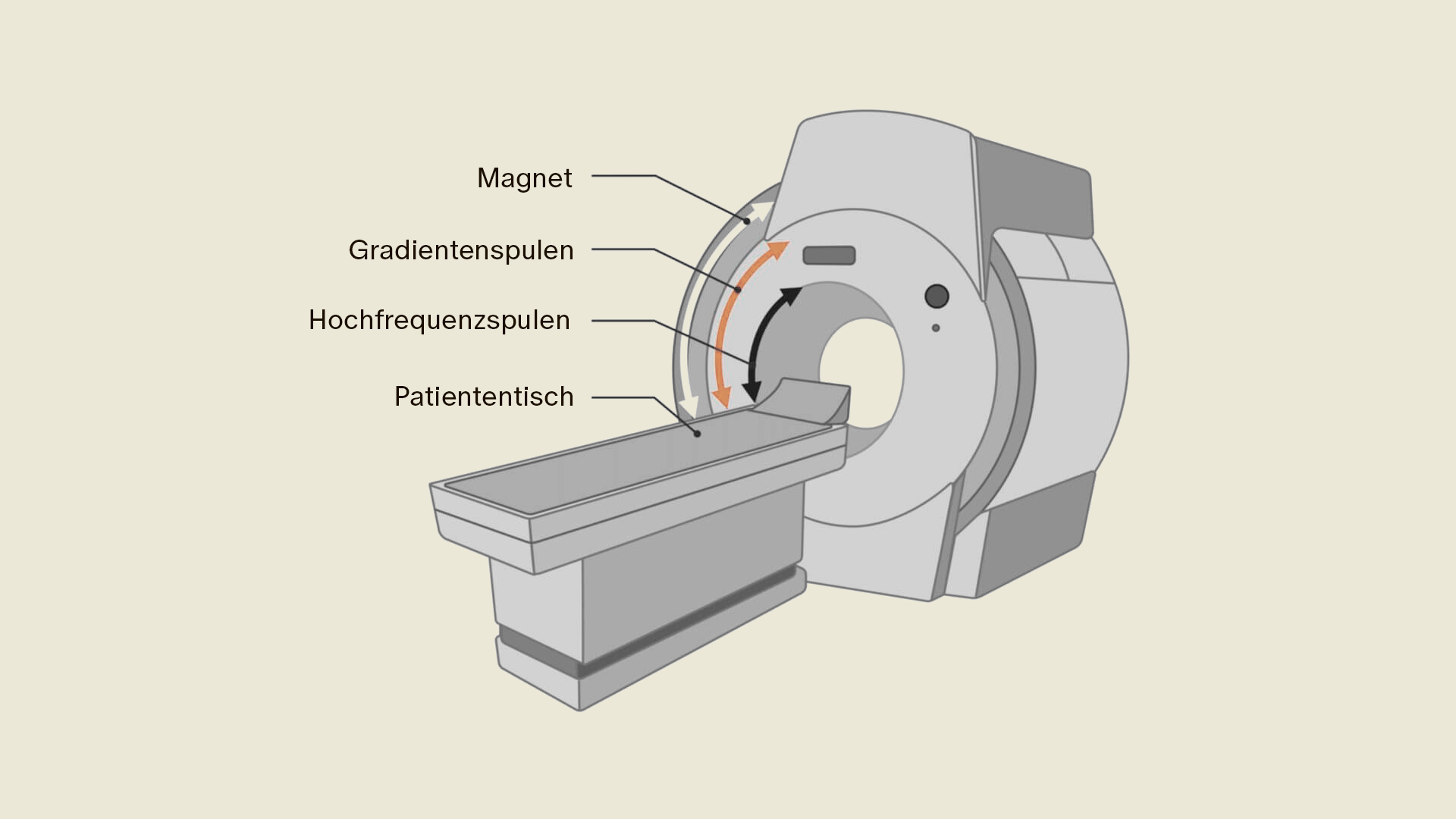
According to a study by Charité, about 35% of MRI patients experience claustrophobic symptoms, even though only 2.3% are diagnosed with actual claustrophobia. These symptoms typically manifest as discomfort. However, even in such cases, there is no need to worry, as patients can communicate with medical staff at any time via a speaker system and emergency button.
Fear of MRI Results
A common cause of anxiety related to MRI scans is the fear of a bad diagnosis. The thought that the scan could reveal a serious condition, such as cancer, can be terrifying. However, it is important to understand that early detection dramatically improves survival rates. For cancers like colorectal or lung cancer, survival rates in the early stages can be as high as 90%, while they drop significantly in later stages. This is supported by a study from the American Cancer Society, which shows that the 5-year survival rate for stage I colorectal cancer is 91%, while it drops to only 14% at stage IV. Similarly, lung cancer survival rates in early stages are about 60%, but fall to around 6% in later stages, according to a study by the National Cancer Institute.
Another related fear is not knowing what happens once an abnormality is found. If Aeon detects something during your MRI, we’ll guide you further. We work with a network of experienced specialists to whom we can refer you if needed, whether it's for further diagnosis, specific treatments, or a second opinion. Your well-being is our top priority, and we support you every step of the way.
Fear of Misdiagnosis
Another common concern related to MRI scans is the fear of misdiagnosis—either a false result leading to unnecessary treatments or a serious condition being missed. In rare cases, false-positive or false-negative results can occur. A false-positive means something is flagged as problematic but turns out to be harmless, while a false-negative misses an existing condition.
At Aeon, we minimize these risks by validating MRI results with our precise blood analyses. This cross-validation significantly reduces the likelihood of false-positive results by complementing imaging with biochemical markers. By combining MRI scans with blood tests, we ensure that you get a particularly accurate and comprehensive picture of your health. Unclear results are usually followed up with additional tests to further reduce the risk of misdiagnosis. If you want to learn more about false-positive diagnoses, you can find further information here.
How Can You Manage Fear of MRI Scans?
If you're feeling anxious due to claustrophobia or fear of bad results, there are various strategies and alternatives that can help:
- Larger MRI Machines: Newer MRI machines have larger diameters, which significantly reduce claustrophobia. Check if radiology centers near you offer these machines. At Aeon, for example, we use modern MRI systems.
- Listen to Music or Watch Videos: Many MRI machines allow you to listen to music during the scan. At Aeon, you can even play your own Spotify playlist.
- Bring a Companion: Having a trusted person with you during the scan can significantly ease anxiety.
- Practice Deep Breathing and Meditation: Breathing exercises or meditation are proven methods for managing anxiety during an MRI.
- Consider Sedation: In cases of severe anxiety, a sedative may help you relax without impairing your ability to function. At Aeon, you can choose between a milder nasal spray or stronger sedatives, which your doctor will explain beforehand.
- Use the Emergency Button: You can stop the scan at any time if the discomfort becomes overwhelming.
- Inform Yourself About the Procedure: Knowing what to expect during an MRI scan can ease many of your concerns. Watching explanatory videos can also help, as they give you a clearer idea of what to expect. Many hospitals or radiology centers offer these videos on their websites.
Are There Alternatives to a Classic MRI?
Yes, if you prefer not to undergo a traditional MRI, there are several alternatives. You can opt for a different imaging method or one of the newer forms of MRI that have been developed in recent years.
Regarding other imaging methods, please note that they do not directly replace MRI.
They provide different, often complementary information to what an MRI would deliver. Therefore, it is crucial to discuss with your doctor whether an alternative method makes sense in your specific case.
Computed Tomography (CT)
CT scans are often considered an alternative to MRI, but they offer different insights. While CT scans are faster and less noisy, they involve exposure to X-ray radiation, unlike MRI. Moreover, CT is less suitable for precise imaging of soft tissue structures, such as muscles, ligaments, and organs, which MRI excels at.
If you want to learn more about the differences between MRI and CT, you can find a detailed article here.
Nuclear Medicine
Nuclear medicine procedures, such as PET or SPECT scans, can be used in specific cases as a complement to MRI, particularly for assessing metabolic processes. These scans involve the use of radioactive substances, which are detected by a scanner. However, anatomical details, often crucial for precise diagnoses, are not as clearly depicted as with MRI. Moreover, patients are exposed to ionizing radiation during these tests, unlike with MRI.
Open MRI and Seated MRI
There are now MRI machines designed to address claustrophobia concerns. These include “open MRIs” and “seated MRIs.”
In an open MRI, you still lie on a movable table that enters a scanner, but the scanner is not a closed tube. Instead, it has several large openings. This allows you to lie slightly turned on your side or even sit upright.

A seated MRI, also known as an upright MRI, resembles a small room that opens up in width at the front. It's called upright MRI because the design allows the patient not only to sit but also to stand during the examination.

The open design of both device types helps to prevent claustrophobia and reduces the noise from the magnetic coils.
However, both open and seated MRIs have three significant disadvantages compared to a traditional MRI machine:
- Image Quality: Due to the open structure, the magnetic fields in open MRI machines are weaker, resulting in lower image quality. This is a critical disadvantage, especially for detailed examinations of tissue structures. Our closed, state-of-the-art MRI machines provide optimal image sharpness, which is essential for an accurate diagnosis.
- Examination Duration: Open MRI machines take longer to capture the necessary images because of the weaker magnetic fields. This leads to longer examinations, whereas our closed MRI scanners work more efficiently and deliver faster results, making the examination more comfortable and time-saving.
Conclusion
It’s completely normal to feel anxious about the confined space of an MRI machine or about the results of the scan. However, getting these results early is crucial. The sooner a diagnosis is made, the quicker treatment can begin, and the better the chances of recovery. MRIs are ideal for early disease detection due to their high image clarity, particularly when conditions are still treatable.
If you have concerns about claustrophobia, there are several strategies that can help:
- Use larger MRI machines: Modern MRI machines, like those used at Aeon, have a larger diameter, significantly reducing the feeling of confinement.
- Listen to music or watch movies: At Aeon, you have the option to listen to music or watch films during the examination to make the process more pleasant.
- Bring a companion: A trusted person can accompany you during the scan, which can greatly ease anxiety.
- Breathing exercises and meditation: These are proven methods to help you remain calm during the examination.
- Sedation: If the anxiety is too overwhelming, mild sedatives can be used. At Aeon, we offer several options, which you can discuss with your doctor beforehand.
- Emergency button: You always have the option to stop the examination if the discomfort becomes too intense.
- Be well-prepared: Inform yourself in advance about the procedure and discuss any concerns with your doctor to gain more confidence.
If you want to learn more about our MRI options or book an appointment directly, you can easily book a scan here.


